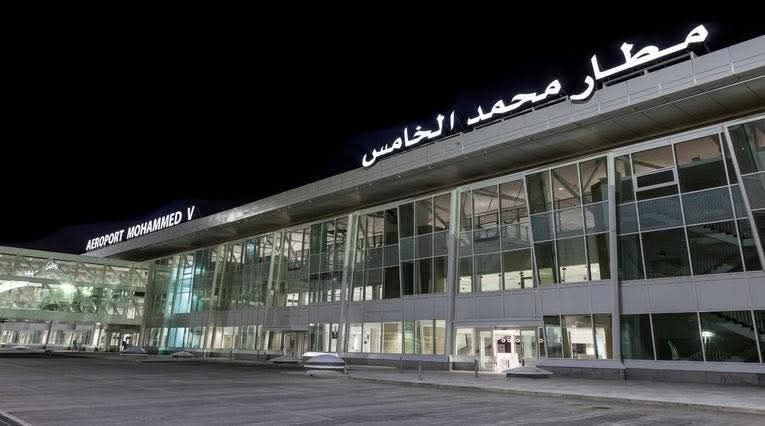Casablanca – The International Monetary Fund (IMF) has reaffirmed its confidence in the Moroccan economy, describing the Kingdom as one of the most dynamic and resilient economies in North Africa. In its latest assessments covering the Middle East, North Africa, Afghanistan, and Pakistan (MENAP) region, the IMF reported that Morocco achieved a growth rate of 4.4% in 2025, surpassing most neighboring economies and exceeding both regional and global averages.
According to the Fund, Morocco’s performance places it ahead of Algeria (3.4%), Egypt (4.3%), and Tunisia (2.5%), and nearly on par with the United Arab Emirates (4.8%), one of the region’s fastest-growing economies. The IMF attributes this strong performance to a mix of structural reforms, diversified economic activities, and sound macroeconomic management that continue to support the country’s long-term growth trajectory.
Structural reforms and sectoral revival
The IMF report highlights that Morocco’s economic momentum in 2025 was driven by multiple reinforcing factors. A rebound in agricultural production helped offset the lingering effects of drought, while the tourism sector experienced a strong recovery, benefiting from record arrivals that reinforced foreign exchange reserves. Additionally, infrastructure investments, including projects in transportation, logistics, and renewable energy, played a pivotal role in sustaining growth and improving competitiveness.
The IMF noted that Morocco’s continued industrial diversification—particularly in automotive manufacturing, aerospace, and green hydrogen—has enhanced its export capacity and positioned it as a competitive hub for global value chains. These developments, combined with the expansion of renewable energy projects, have reduced Morocco’s dependence on imported energy and strengthened its resilience against external price shocks.
Regional leader in growth and stability
With a growth rate of 4.4%, Morocco stands above the MENA regional average of 3.3% and the global average of 3.2%, confirming its status as a regional leader in economic performance. The IMF projects that Morocco’s GDP will expand by 4.2% in 2026 and stabilize at around 3.8% by 2030, suggesting sustained medium-term growth.
The Fund also emphasized the country’s macroeconomic discipline, noting that Morocco has maintained manageable debt levels, a cautious monetary policy, and a stable exchange rate. These measures, combined with structural reforms launched in recent years, have allowed the Kingdom to weather global economic turbulence better than many emerging markets.
According to IMF analysts, Morocco’s resilience reflects the impact of long-term policy choices, including fiscal consolidation, improved investment frameworks, and strategic partnerships aimed at deepening integration with global markets. The report also underlined the positive contribution of remittances and foreign investment, both of which have strengthened external balances and supported domestic consumption.
Broader regional and global context
In its broader outlook, the IMF acknowledged that the Middle East and North Africa region has shown remarkable resistance to the effects of global trade disruptions, higher U.S. tariffs, and regional geopolitical tensions, which it described as limited and temporary. However, it warned that weak global demand, tighter financial conditions, and persistent inflationary pressures in advanced economies could weigh on growth in the years ahead.
For Morocco, the IMF expects continued resilience but advises vigilance in managing risks associated with external financing needs and climate vulnerability, especially given the recurring challenges posed by drought. The Fund noted that Morocco’s ongoing green transition policies and agricultural modernization efforts could mitigate these risks over time, particularly as renewable energy and sustainable farming become more central to the country’s economic strategy.
Outlook and policy recommendations
While the IMF’s tone remains broadly positive, the report stresses the need to maintain reform momentum to safeguard fiscal and external stability. The Fund urged Moroccan authorities to continue strengthening medium-term fiscal frameworks to ensure long-term budget sustainability and to enhance monetary policy transparency and predictability to better anchor inflation expectations.
The IMF also encouraged the Kingdom to build on its current growth phase by investing further in education, innovation, and digital transformation, key areas that could raise productivity and create more inclusive employment opportunities. Despite the projected decline in unemployment from 13.3% in 2024 to 13.1% in 2025 and 12.7% in 2026, the Fund noted that labor market reforms remain essential to match Morocco’s expanding economic potential.
A model for emerging economies
Globally, the IMF compared Morocco’s growth path to that of other emerging economies such as China (4.8%) and India (6.6%), observing that the Kingdom’s steady expansion and reform-driven model position it among the most stable mid-income performers. The Fund also emphasized Morocco’s success in balancing economic diversification with social stability, which continues to attract foreign investors and strengthen confidence in its long-term prospects.
The IMF described Morocco’s 2025 growth record as a reflection of strategic policymaking and institutional strength. While acknowledging the persistence of global uncertainty, the Fund expressed optimism that Morocco’s combination of prudent governance, targeted reforms, and sectoral dynamism will allow it to maintain a sustainable and resilient growth trajectory in the years ahead.
At a time when several economies across the MENA region face slowing output and fiscal constraints, Morocco, according to the IMF, stands out as a model of balanced economic recovery and disciplined financial management, charting a path of steady progress and macroeconomic confidence.















